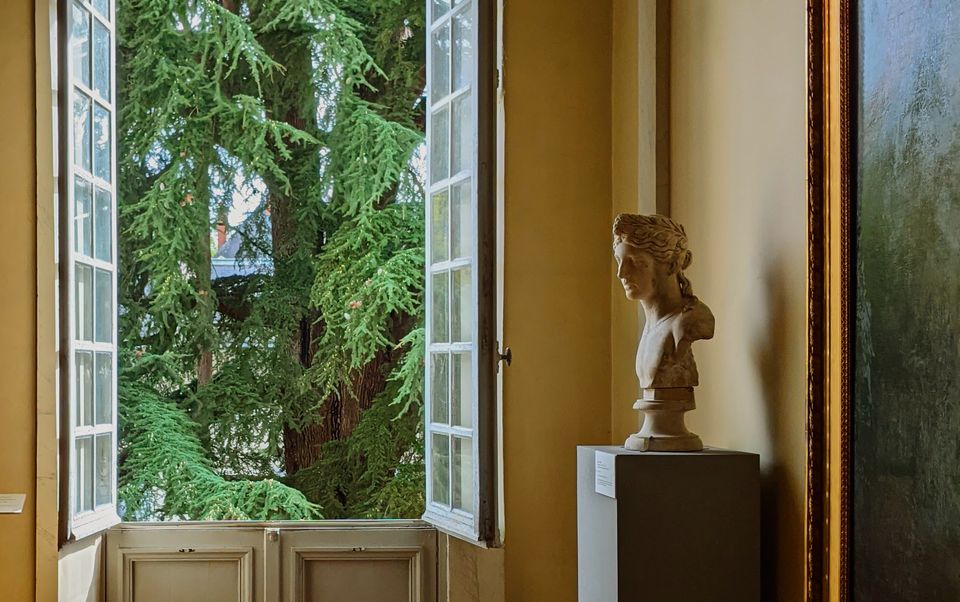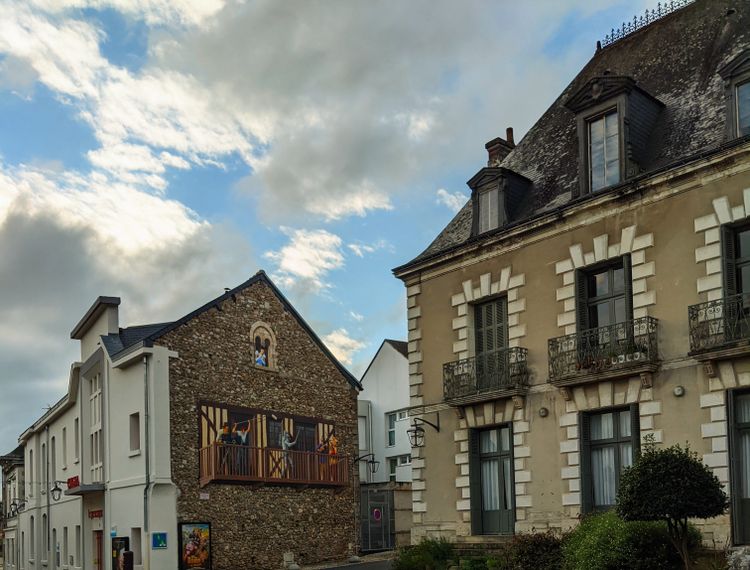The Foreigner's Guide to Apartment Hunting in France

Last updated March 6, 2023
Finding housing is one of the biggest worries of anyone moving to France for the first time. Whether you’re doing TAPIF, moving to France as an international student, or anything else, figuring out where you’re going to call home can be a stressful process. Here are my tips for finding your next home!
Do I try to find an apartment before arriving?
Obviously everyone’s situation is different, but I don’t generally recommend this. If you sign a lease without ever seeing the apartment, you run a much higher risk to get scammed. What I did when I first came to France as a language assistant (and what most people do) is reserve an AirBnB for about two weeks and spend all that time apartment hunting. In larger cities, you may need to budget for more time for apartment hunting. The TAPIF handbook recommends four weeks when apartment hunting in Paris and I’ve anecdotally heard that the housing market in Lille can also be fairly competitive. Outside of very large cities, this timeframe is enough to find a place, be approved, and move in. Seeing apartments in person means that you’ll be more likely to see red flags with the apartment or landlord. Furthermore, in my experience, landlords tend to be most responsive to receiving calls or texts, which you’ll only be able to do once in France with your French number.
One exception to this rule is if the apartment/landlord comes recommended to you by someone you know, such as your professeur référent (if you’re a language assistant) or a friend who can vouch for it or go see it in person for you. If you’re a language assistant, I recommend contacting all of your coworkers to ask if they know anyone in the area who is looking to rent an apartment.
If none of these pan out but you are absolutely determined to have your housing situation sorted out before arriving in France, I would recommend reserving a spot in a foyer, which is basically a privately-owned dorm. Since the building is run by a company, which publishes lots of pictures on its website, and not a private individual, you have less of a chance of being scammed. The rent in foyers also tends to be affordable, making them a good choice for students and language assistants alike.
Timeline
Just because you shouldn’t be trying to sign a lease right away, doesn’t mean that the apartment hunting process should be an out of sight, out of mind affair until you get to France. Once you know the city you’ll be living in, start looking at listings across multiple platforms. This will help you start to manage your expectations in terms of budget and apartment amenities. You’ll also know what documents/requirements the average landlord in your city asks of tenants. You’ll also start to become familiar with the different neighborhoods in your city and what kinds of apartments can be found in them. Also, checking in regularly on listings will tip you off to how long a listing will stay available, which helps you know how competitive the real estate market is. I did all of these things before first moving to Tours and it helped me hit the ground running in terms of finding a home.
The bank account-address paradox
When first arriving, many foreigners worry about what I like to call the bank account-address paradox. In France, you need an address to get a bank account, but you obviously also need a bank account to pay for said apartment. Luckily, there are several ways around this.
There are multiple options for the bank account side of things, so let’s start there. If you are in secondaire, ask your professeur référent if they would be willing to write you an “attestation d’hébergement.” This is a document that they sign stating that they are hosting you, which means that you can use their address to set up your bank account. The other option is to ask for your school’s administration to write you this same letter, except with the school’s address. Some teachers and schools may be comfortable with this, others may not, so neither of these are 100% sure, but they are possible solutions.
If you find your apartment before being able to set up a bank account, you will still be able to pay your landlord. You can transfer money from your American (or wherever you’re from) account to your landlord’s account using a money transfer service. I recommend using Wise (formerly TransferWise) since it has the best rates. You can use my invitation link here.
Sites to find housing
So, let’s get into it! Here are some of the best places to find apartment listings. Keep in mind that certain cities may tend to have better deals on certain sites, but all of these methods are reputable across. To find out more about where to find good deals in your city, talk to people who have lived there before.
- LeBonCoin: this site is the French version of Craigslist, albeit somewhat less sketchy. It is used all over the country to list and find roommates. It’s very safe and reputable. If you go into the Immobilier category, you can find apartment listings under Locations and roommate offers under Colocations. You can filter your search and then save that search and receive notifications whenever something new is posted that matches your requirements. You can also add listings to your favorites and message with the people listing apartments. I found my own first apartment in France through LBC and I think it is where you’ll find most listings in most French cities. The only problem with LBC is that you need to pay to add more than 3 pictures to a listing, which sometimes means that you won’t get enough pictures to get an idea of an apartment. Just message the landlord and ask for more pictures.
- SeLoger: I personally didn’t have much luck with SeLoger in Tours, but I know it’s more popular in other cities. Just like LeBonCoin, you go into the Louer category and filter for price, town, etc.
- Your town’s Facebook groups: Search Facebook for groups called “Locations et Colocations” with your town name. If you’re going to be living in a student city, join the local student Facebook group, since people often post apartment listings there too.
- La Carte des Colocs: if you’re hoping to live with roommates, you can use this website to browse profiles of people looking to fill space in their apartments.
- Particulier à Particulier: I have personally never used this website, but I believe it is recommended in the TAPIF handbook and based on the name, it is only private landlords, not agencies (more on this later)
- Jinka: This website puts together all of the websites listed above which can help you see every listing all in one place. I'd still recommend making individual accounts on other sites, especially the big ones like LeBonCoin, so that you can use their messaging services, but be able to browse everything in one place is helpful.
- Le Foyer des Jeunes Travailleurs/Foyer Étudiant: I mentioned foyers earlier in this post, but it’s worth going into more detail about them. These are privately owned dorm-style homes. Usually, you pay for a private furnished room, which sometimes have private showers and toilets in them. Sometimes the shower and/or the toilets are shared. The kitchen and other amenities are usually shared. The rent is usually fairly cheap and allows you to have a communal living experience with people your age. How nice and well-maintained the foyer is different all across the board. Some foyers can also have age limits or other eligibility requirements (for example, you must currently be a student to be in a foyer étudiant). To find options available in your area, search your town name and foyer.
How to count rooms in a French apartment
Like in American apartments, the kitchen and the bathroom (whether or not the toilets are separated) do not count into the overall room count of the apartment. Instead, you take the number of rooms outside of these to count the rooms in the apartment. This number is then paired with the letter T to describe the apartment. So a T1 is a studio apartment and a T2 is a one-bedroom with a living room. The word bis is often used to mean that there is half of a room. So a T1 bis would be a studio with a separated small room (in most cases, a loft). Sometimes you will also the letter F used instead of a T, with the same numbering system.
Une agence ou un particulier?
A particulier is a private individual landlord, whereas an agency is a larger real estate agency. You don’t have to hire an agency to look for apartments to end up paying agency fees though. If the landlord has registered their apartment with an agency, you may have to pay their agency a fee before moving in. This is similar to a broker fee in the US and is usually about a month’s rent and is not refundable. Some websites, like LeBonCoin, allow you to filter out listings that are associated with agencies if you want to avoid these fees. However, in some cities, avoiding an agency may not be possible, and you will discover whether or not that is the case based on your own preliminary research.
A note on French leases
Unlike in the US, French leases do not lock in a tenant for a year. You can break a French lease at any time without consequences. You simply have to give your landlord the agreed-upon amount of notice that you are leaving and then you leave your apartment (this will be detailed in your lease contract). You also don’t have to move in or out on the first of the month. You can move in whenever the apartment is available and choose a date that is convenient to you for moving out. For moving in and out, if you don’t spend the whole month in the apartment, you can and should ask to pay a prorated rent (aka only pay for the number of days you were in the apartment).
The only thing in France that I have seen that even closely resembles the strictness of American leases is what is known as a bail étudiant. This is where the apartment is only available for one academic year (usually around 9 months) and the tenant is not allowed to stay in the apartment past that time period.
Ask your landlord about these!
Many French landlords require a garant (aka a co-signer) if your income is less than three times the rent. They also will not accept a foreign garant a majority of the time. Most foreigners use a free service through the French government called Visale as their garants. When you are visiting apartments and the landlord is telling you about the required supporting documents, ask them if they accept Visale as a garant. Most French people aren’t familiar with Visale, so they may be willing to accept it, but will need you to explain it to them. Make sure to emphasize that this is a service offered by the government!
If you are hoping to benefit from the government housing welfare (called la CAF or les APL), then you need to ask your landlord if the apartment is eligible to receive that aid. All you need to ask is “Est-ce que ce logement est éligible aux APL ?” This is not a taboo question to ask and the landlord won’t be surprised that you’re asking this and they will probably know the answer on the spot.
Once you have been approved for an apartment, make sure that you and your landlord are scheduled to have an “état des lieux.” This is a walkthrough of the apartment that the tenant and the landlord do together and fill out a form where you note the state of the apartment during both move-in and move-out. This is your legal right as a tenant and making note of previous damages helps ensure you get your deposit back. If your landlord does not offer to do this, this is a red flag. You are legally entitled to an état des lieux and should either insist on it or find a different apartment.
I want to live in a long-term AirBnB. Is this possible?
This is possible, but you need to check in on a few things first. You need to make sure that you can receive mail at this lodging, since having a valid address is important for a lot of administrative tasks in France (including banking, like I mentioned earlier). Ask the host if they are willing to put your name on the mailbox so that your mail will be delivered. If you find an apartment that you love on AirBnB, it may be worth asking if the host would be willing to write you an official lease so that you have a legally binding document protecting you.
Miscellaneous information
- In France, especially in small apartments and studios, you are not guaranteed an oven or a freezer. Oftentimes, you get more of a kitchenette than a full kitchen. You can buy small countertop ovens that can actually cook and bake very well, but don’t necessarily write off the apartment as a scam if it doesn’t have an oven
- The toilet and the shower are often separate in apartments.
- In a furnished apartment, landlords are allowed to ask for two months of rent as a deposit. If you see this, they are not necessarily scamming you.
- French landlords will ask for the first full month of rent, a deposit, and the first month of prorated rent (if applicable). They do not ask for the last month of rent when you move in.
Vocabulary
une agence: an agency
une cuisine américaine: a kitchen that’s open or faces into the living room
les charges: the utilities
charges comprises (CC): refers to a rent that includes the cost of the utilities, most of the time meaning water
la caution: the security deposit
le dépôt de garantie: can also be used to refer to your security deposit
être équipé de: to come with
les frais d’agence: agency fees
un garant: a co-signer
se porter garant: to be someone else’s cosigner (Ex: ma mère se porte garant)
une kitchenette: a non-complete kitchen (usually a minifridge, a small countertop oven, and 2 burners)
le loyer: the rent
meublé: furnished
non meublé: not furnished
un(e) particulier(e): a private landlord
une pièce: a room
une résidence: an apartment building
une salle d’eau: the shower room
le séjour: family room/living room
WC (séparés): toilet (separated)
I hope that this article has helped answer some questions and quell some anxieties about moving to France. Happy moving!




